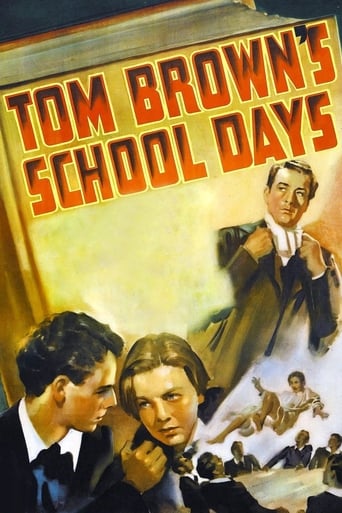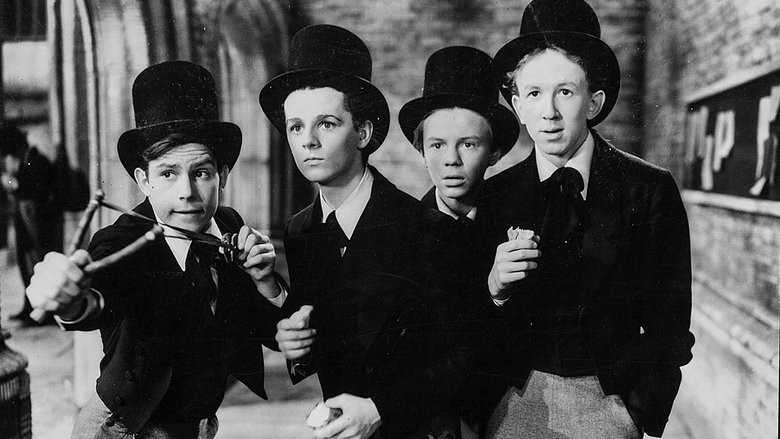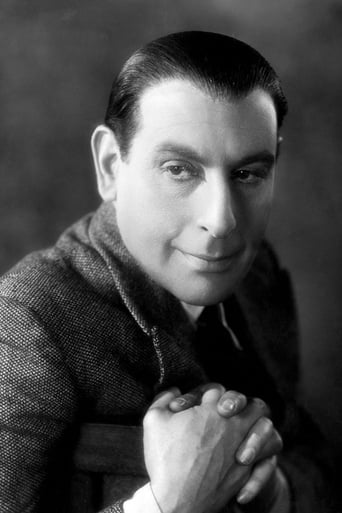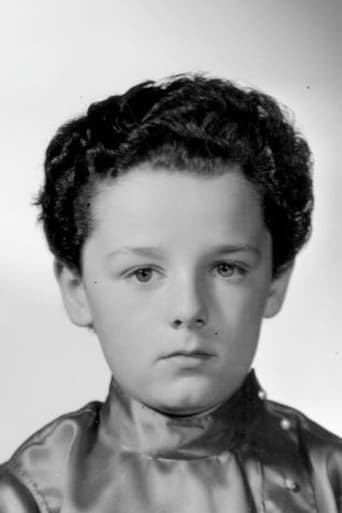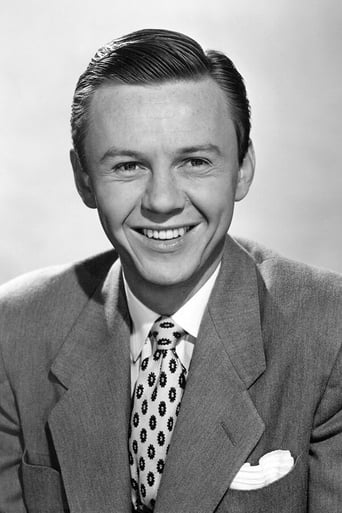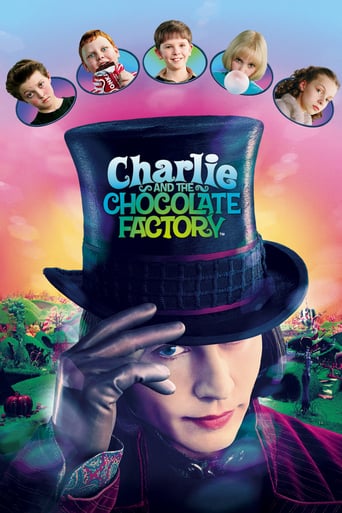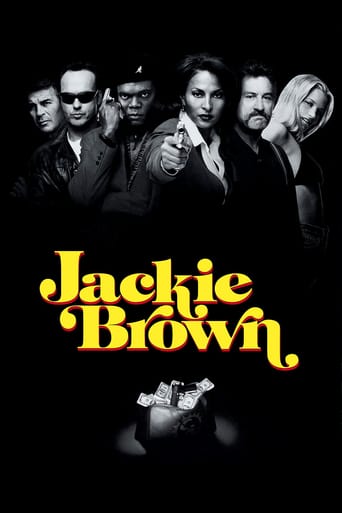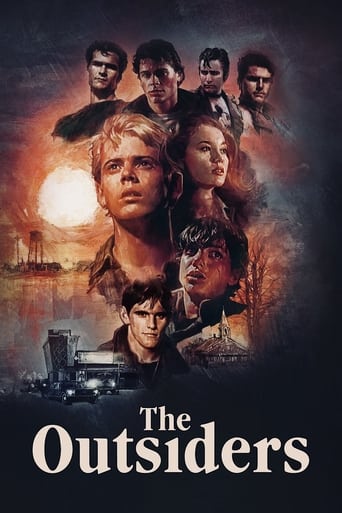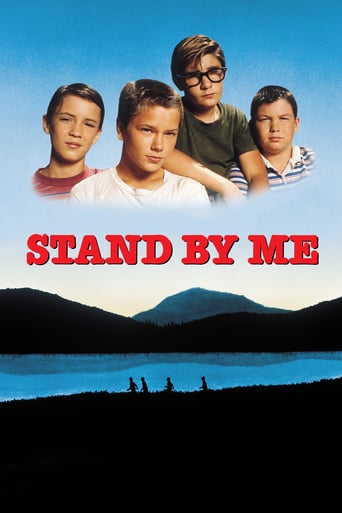Tom Brown's School Days (1940)
When private tutor Thomas Arnold (Sir Cedric Hardwicke) becomes headmaster at Rugby, a boy's preparatory school in England, he puts into place a policy of strict punishment for unruliness and bulying. Arnold finds an ally in Tom Brown (Jimmy Lydon), a new student who is subjected to hazing and abuse by a group of older boys and is pressured by his friends to keep quiet about it. Fed up, he leads his fellow classmates in an underground rebellion against their tormentors. But certain unspoken rules still apply at the school and Brown loses his hero status when he is accussed of breaking the Rugby code of silence.
Watch Trailer
Free Trial Channels
Cast


Similar titles
Reviews
terrible... so disappointed.
Let's be realistic.
I didn’t really have many expectations going into the movie (good or bad), but I actually really enjoyed it. I really liked the characters and the banter between them.
Let me be very fair here, this is not the best movie in my opinion. But, this movie is fun, it has purpose and is very enjoyable to watch.
As an American, I didn't have the privilege of growing up in a British boarding school. So, regular beatings, hazings and the like are something I did not have the fortune to experience first-hand. Considering what I saw in this film, I think I can live without that privilege."Tom Brown's School Days" is about an enlightened headmaster (Cedric Hardwicke) and his attempts to create a school based on honesty, tradition and regular beatings administered by staff and not fellow students. While Hardwicke is against bullying and dishonesty, I did find his regular lashings of the boys to be a bit hypocritical. But, in this film he's supposed to be the model of decency and integrity--which makes me assume other educators of the day regularly killed their kids!! All sarcasm aside, the film is watchable and mildly entertaining. Harwicke was a wonderful actor and so I would recommend you see it if only to watch him. As for the rest, it's a decent time-passer. However, the ending seemed VERY anticlimactic and incomplete--the reason why I only scored this one a 5.
Since this was made, there have been some other very good movie versions of the story, but this adaptation of "Tom Brown's School Days" is still worth seeing. It has a good cast and good atmosphere, with effective story-telling by Robert Stevenson.Cedric Hardwicke is well cast as the stern headmaster Arnold, and the three most important young characters also work well. Jimmy Lydon as Tom, Freddie Bartholomew as his friend and rival East, and Billy Halop as the bully Flashman all give good performances.The boarding school setting is also done effectively, and it works both in creating the right atmosphere and as a period setting. There are times when it pulls you right into the world of the young characters, a world in which they are their own masters in many ways. Their boyish loyalties, threats, fears, rivalries, and misunderstandings all come across believably.On a broader level, it also succeeds in establishing the tension between the adult's (i.e. the headmaster's) goals and the students' goals. Some of the more recent versions have probably done an even better job of communicating the themes while also making the story entertaining, but this one does a solid job as well, and it deserves also to be remembered.
This is a film of a work of fiction written by Thomas Hughes in 1857 which featured the life of Thomas Arnold, headmaster of Rugby School from 1828 to 1842, and the name Hughes gave to the principal fictional character in his novel was Tom Brown. There appears to be some significance in this choice of name. Hughes himself attended Rugby school during the period of Dr Arnold's headmastership, this is why he was able to write about the school with such authority; so it appears to me that the character of Tom Brown (and perhaps the entire book) is probably semi-autobiographical - but, somewhat surprisingly, I have never seen this discussed elsewhere.There are many famous schools throughout the world which have modelled themselves, with greater or lesser success, on the British Public School, but collectively the British schools have one unique feature - they created an extremely successful method for perpetuating the rule of the established oligarchy in the U.K. over a period of several centuries when the country was the most powerful in the world. In the U.K. Public Schools are private foundations theoretically open to all, but their high fees meant that education was largely limited to the sons of members of the ruling class, and a Public School education became almost a pre-requisite for admission to a University, election to Parliament or recruitment to any senior government position. It is surprising that, despite this, the Public Schools have always been able to keep a fairly low profile although it is clear that they must have considerable importance both sociologically and historically. Most Englishmen can think of several of the leading Public Schools such as Eton, Harrow, Rugby and Shrewsbury, but few know much about them. Almost the only widely read book dealing with the subject has been "Tom Brown's School Days" the book written by Thomas Hughes on which this film is based. It is a fictional work dealing with the reform of the public school system which started in Rugby under Thomas Arnold, its great headmaster from 1828 to 1842. This was a time when abuses had crept into the system and were beginning to discredit it. At Rugby, Arnold largely stamped out excessive bullying and helped establish ethical standards under which telling tales about fellow students or uttering any untruths became totally unacceptable behaviour. During the process Rugby, which had been a fairly minor Public School, became the leading one in the country. This is the background to Hughes' book, and it also forms an integral part of this film, as well as a remake of it that was released a decade later. Both films were made more than a half century ago but have remained of sufficient interest to justify them retaining ongoing availability on videotape. Nevertheless today this ongoing interest probably arises primarily from readers who have enjoyed the book, former students at one of these schools, educationalists or sociological historians, so today sales of these tapes are probably small and I would guess that we are unlikely to see either film on DVD in the near future. Although the two films are well made, with well acted stories that most people can watch with enjoyment, their unfamiliar scenario would make it unlikely that many of today's movie patrons would make any effort to search them out and this makes rating them a little difficult. PARTIAL SPOILER FOLLOWS - The book relates how Tom Brown goes to Rugby as a new boy and falls victim to the older bully Flashman. Eventually he obtains boxing training and successfully fights Flashman to establish his place in the sun. When Flashman contravenes the unwritten school ethical code Arnold takes the opportunity to expel him and, by the time Tom graduates, the headmaster, together with other boys like him, have succeeded in transforming the old atmosphere in the school. The story in the book is followed fairly closely by this film, which was made in 1940 with the famous and very prolific actor Sir Cedric Hardwicke giving a great performance as the headmaster. Unfortunately, in the U.K. 1940 was the darkest period of World War II and films released then did not attract a great deal of attention, so the film was remade only a decade later with a different cast who also gave a number of very fine performances, and it was spiced up with a much more melodramatic screenplay in which Flashman is not merely a bully but exhibits behaviour verging on the criminal. Since both films provide good meaty stories which most viewers should enjoy, this is one of the rare cases where both an original film and its remake are still worth watching. However for my money I prefer this 1940 film because it is more faithful to the book on which it is based, and (although we can no longer ask anyone what life in the school was actually like in the early nineteenth century) in my opinion is probably much closer to the actual historical story. Primarily because of its somewhat limited appeal I do not think rating this film at more than 6 out of 10 would be justified, but it certainly remains well worth watching by anyone of any nationality with an interest in education.
This work is primarily occupied with the major incidents in the life of Thomas Arnold, headmaster of Rugby, and his overcoming of a good deal of resistance in lifting that institution from a tepid state to a position of England's finest public school. The strong direction is by Robert Stevenson, who also contributed mightily to the script, which is rather faithfully based upon the novel of the same name by Thomas Hughes, and which employs the student Tom Brown as Arnold's tactical and ethical surrogate within the scholastic body. Arnold, who must find an answer to the prevalent bullying of the day, is portrayed by Sir Cedric Hardwicke with a stunning performance, ably supported by Josephine Hutchinson as Mrs. Arnold. The film proceeds at a very crisp pace, with the scenario building well as Brown, played with feeling by Jimmy Lydon, prepares to make a stand against older and tyrannical students led by Billy Halop as Flashman. The arteries of the novel are presented with some depth, demonstrating the inculcation into the students of the importance of physical and mental courage, loyalty, and self-reliance, albeit apparently at the cost of some amount of intellectual achievement. The love of the students for Rugby and for their headmaster is presented throughout, the production design, costumes, and editing are all first-rate, and a superb musical score is contributed by Anthony Collins.

